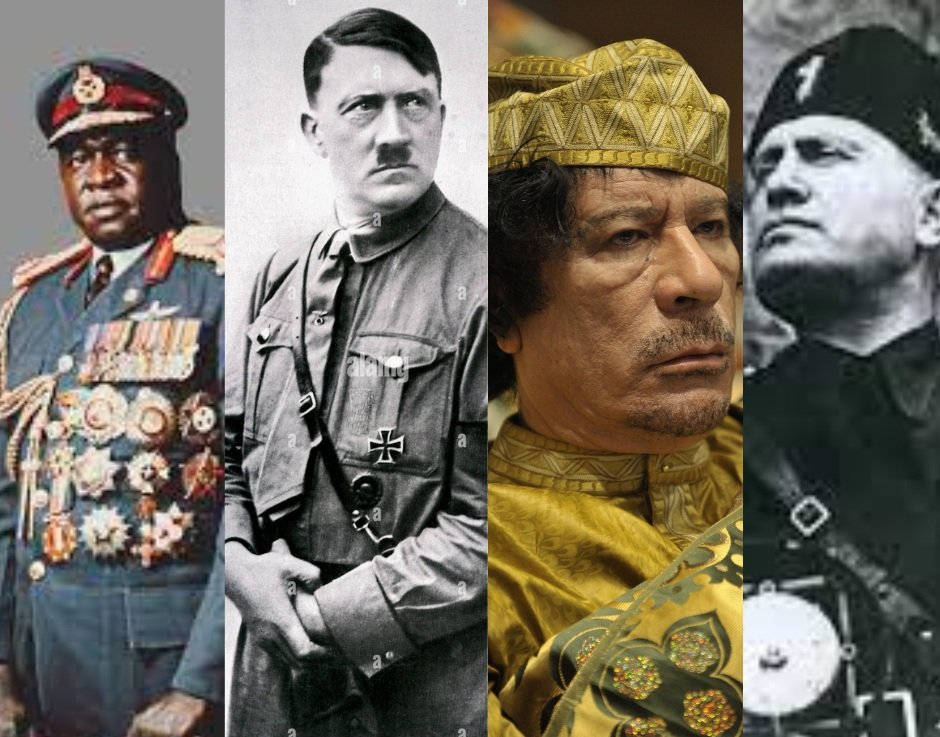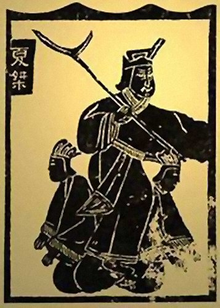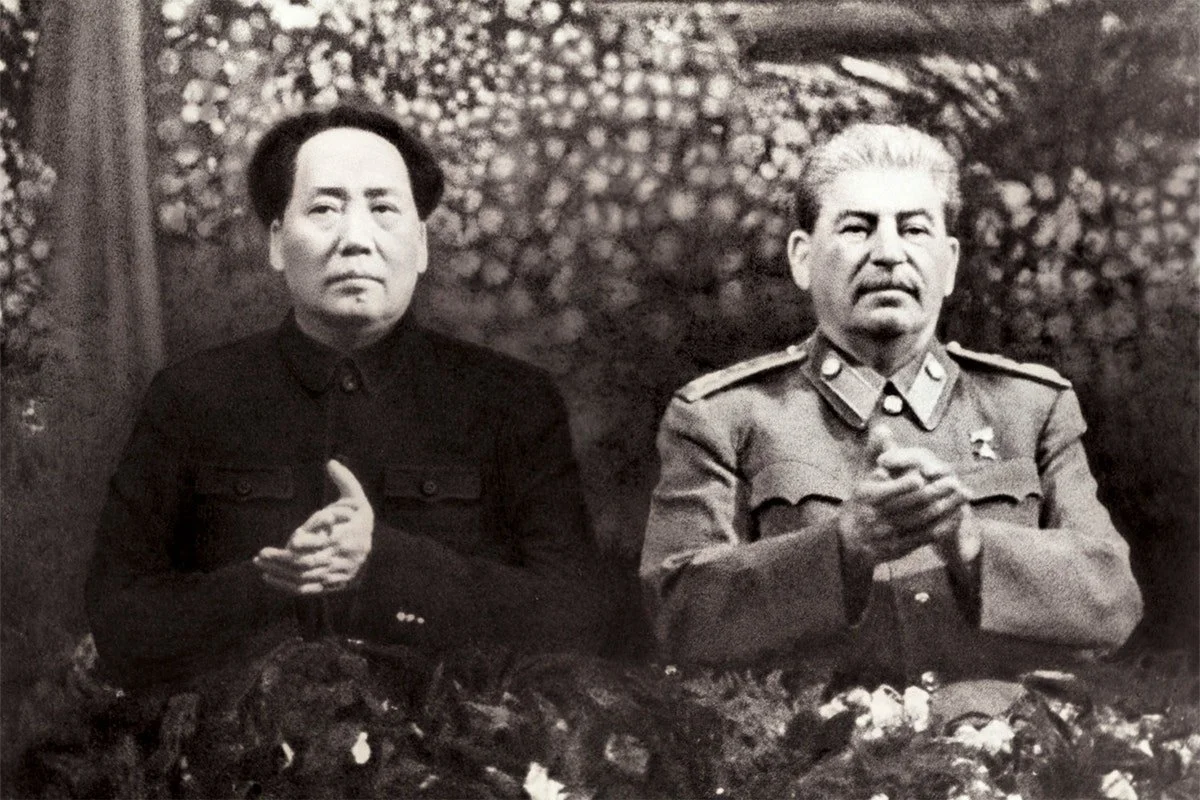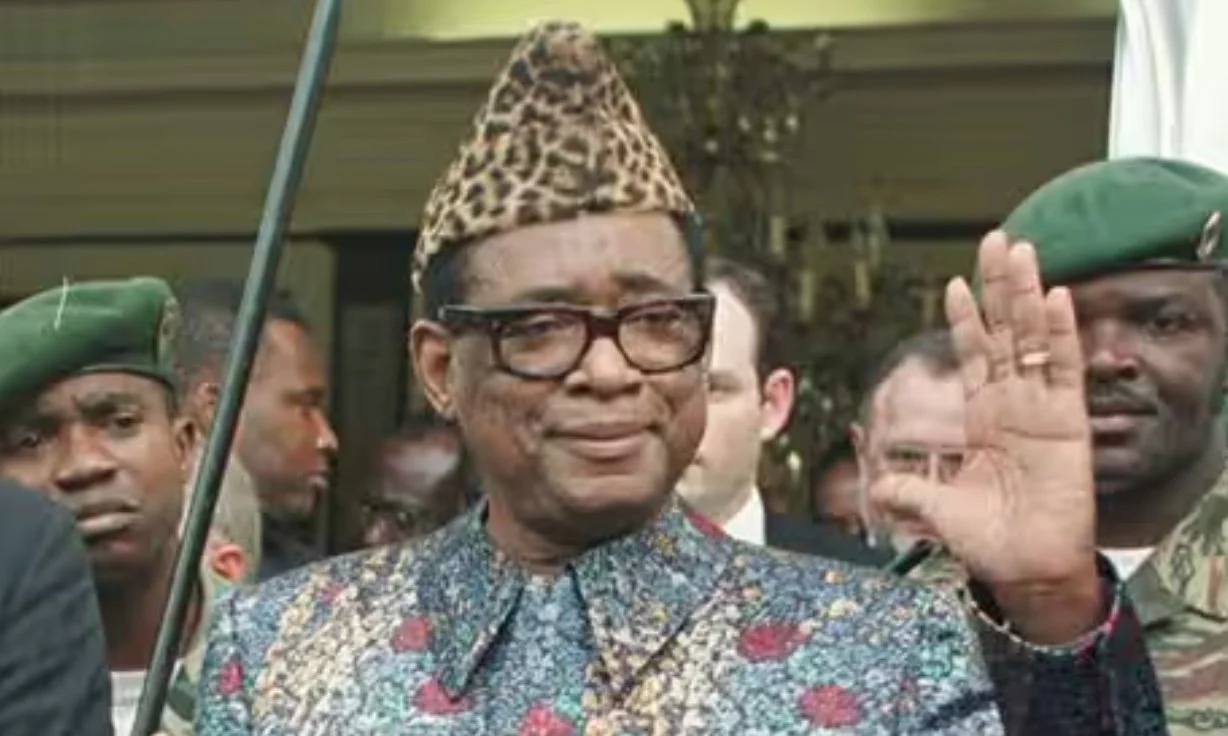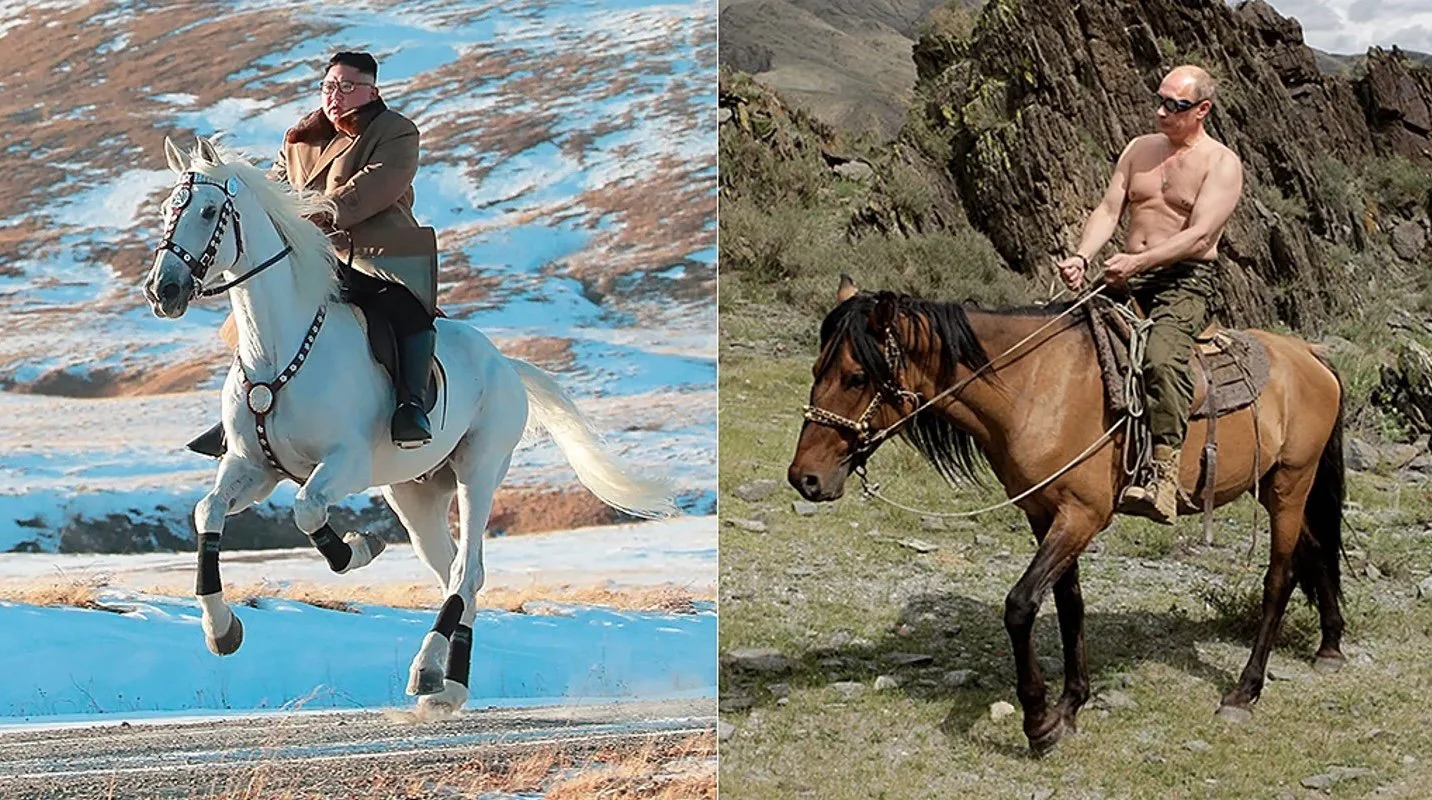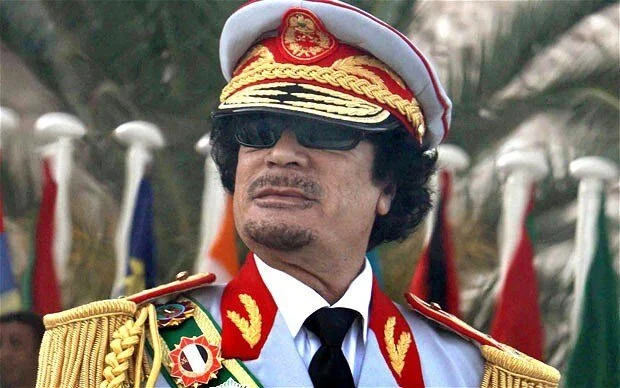By The Landlord
“'Tis time to fear when tyrants seem to kiss.” – William Shakespeare, Pericles
“This tyrant, whose sole name blisters our tongues,
Was once thought honest.” - William Shakespeare, Macbeth
“A tyrant is the worst disease, and the cause of all others.” – William Blake
“Every apathetic individual is a brick in a tyrant's throne.” – Philip Slater
“Non-cooperation with tyrants is a duty.” – Mahatma Gandhi
“The tyrant grinds down his slaves and they don't turn against him, they crush those beneath them.” – Emily Bronte
“Those who voluntarily put power into the hands of a tyrant ... must not wonder if it be at last turned against themselves.” – Aesop
“Power tends to corrupt, and absolute power corrupts absolutely.” – Lord Acton
“The secret of freedom lies in educating people, whereas the secret of tyranny is in keeping them ignorant.” – Maximilien Robespierre
“Death is the solution to all problems. No man - no problem … One death is a tragedy; one million is a statistic … I trust no one, not even myself.” – Joseph Stalin
“The victor will never be asked if he told the truth.” – Adolf Hitler
“Never forget that everything Hitler did in Germany was legal.” – Martin Luther King, Jr.
“Tyrants have always some slight shade of virtue; they support the laws before destroying them.” - Voltaire
“Soldiers! don’t give yourselves to brutes - men who despise you - enslave you - who regiment your lives - tell you what to do - what to think and what to feel! Who drill you - diet you - treat you like cattle, use you as cannon fodder. Don’t give yourselves to these unnatural men - machine men with machine minds and machine hearts!” – Charlie Chaplin, The Great Dictator, 1940
“My name is Ozymandias, king of kings:
Look on my works, ye Mighty, and despair!"
Nothing beside remains. Round the decay
Of that colossal wreck, boundless and bare
The lone and level sands stretch far away. — Percy Shelley, Ozymandias, 1819
Perhaps it's a fatal combination of inflated ego combined with deep insecurity, a potent mix of narcissism and psychopathy, stirred up in a bad relationship with a dysfunctional parent. Might it start with a strange, distorted childhood, an imbalanced mixture of being horribly spoiled but also unloved, a vicious spiral of being difficult and demanding, but being bullied and bullying?
Or could it be because they just had small hands or a tiny penis? Perhaps that's what really puts the rant into tyrant and the dick into dictator.
There have always been controlling characters in society, from the village bruiser to the psychotic business corporation boss, but this week it's time to take a look at history's famous and, for a time, very successful ones, those who went on to take control of countries, how they are captured in song and the nature of their autocratic, absolutist rule. Many political leaders have flirted with the idea of dictatorship, but this week we're just talking about the extreme. From further back in history, perhaps kings who were tyrants, or later, dictators initially elected, or arrived by coup d'etat, who then sought, gradually, to crown themselves absolutely.
To set the mood, here's a sample of the brilliantly disturbing score by Scott Walker, from Brady Corbet's 2015 feature film The Childhood of a Leader, set just after the First World War in 1919, when Europe was in a state of economic turmoil and severe aftershock, and around the time of the Treaty of Versailles. It depicts how an aggressive child's formative experiences set him on path to fascism.
This is a vast subject stretching not only deep into the dark recesses of history as well as the human mind, but as well as picking out names, perhaps we can also identify key traits and behavioural patterns, not only looking back in horror, but also as warning signs in the present. After all, current and would-be tyrants and dictators remain constant threat today with prominent ones prowling around seeking re-election.
King Jie of Xia
So first, you might look at the biggest names or the lesser known and see some recurring patterns. King Jie, the last ruler of the Xia dynasty of China (1728–1675 BC) was a particularly nasty piece of work, who killed all rivals and lived a lavish lifestyle, surrounded himself with slaves, treated his people with extreme cruelty, and filled his daily routine with sex, blingy luxury and absurd levels of entertainment. He is generally depicted with a with a ‘Ji’ or polearm, a weapon representing oppression, and is sitting on two women symbolizing his abuse of power. He was particular picky about his food and beheaded anyone who prepared it incorrectly. He even had a lake of alcohol. Sex, control, violence, excess, cruelty? Already ticking several boxes there you might recognise in current or recent dictators, anyone from Amin to Qaddafi (Gaddafi).
Cleisthenes of the Ancient Greek city of Sicyon (ruler 600–560 BC) was another violent conquering brute who put his own above all other tribes and changed the names of other tribes with those associated dogs, donkeys, and pigs. That sort of language, one of dehumanisation, is one employed by many since, particularly in founding fascism, an ultimate form of propaganda and control.
You might look also to cruelty of Egyptian pharaohs, such as Ramesses II (r. 1279–1213 BC), on whom Shelley's Ozymandias poem is based, putting the crumble of cruel empires in context and the pharoah, whose pyramids Napoleon, another self-crowning ruler, visited on a campaign. Or you go over to Ancient Rome, perhaps to the self-inflating self-named Tarquinius Superbus, who murdered his way to the Roman throne, or crazy Caligula, to the all-conquering Gaius Julius Caesar, who pitted himself against early forms of Senate democracy, and succeeded, that is until Brutus and co got their points in. Dictators usually die a violent death, because that's the only way they to loosen their grip on power.
Genghis Khan
Genghis Khan ( (1162 – 1227) might surely get a look in too, a brutal founder and first khan of the Mongol Empire who ravaged across China and the far east, and, while uniting many tribes under his rule, was known to kill his own men at random and boil prisoners alive.
Over in Russia, becoming the first tsar, Ivan The Terrible (1530 – 1584) had a truly horrible childhood, but certainly got that out of his system with the Massacre of Novgorod where hundreds of victims were killed each day.
But nothing quite compares to the dictators of the 20th century whose death toll and mind games gained an extraordinary level of utterly frightening efficiency. Perhaps there were also simpler more people to kill too. That century seemed to be where propaganda and so-called social cleansing and revolution spread like wildfire, carried out on millions by millions. This is where dictators really got into people's heads to do their dirty work. China's Mao Zedong is thought to have exterminated around 70 million people with his social programmes and policy reforms, Russia's Joseph Stalin (30 million) with the Great Purge also known as the Great Terror, and Adolf Hitler with 17 million, including 6 million in the Holocaust, a trio who could arguably make up the worst three.
Blood on their hands Mao Zedong and Joseph Stalin
But there are many more whose death toll still tops a million at least. King Leopold II of Belgium massacred many millions in the Congo, Turkey's Ismail Enver Pasha was a brutal killer of Armenians and Greeks, but inflicting death on his own people, Cambodia's Pol Pot and North Korea's Kim Il Sung are high rankers in totalitarian, repressive violence and control.
Somehow Africa's dictators often get overlooked in the big dictator lists, but there's an extremely long and consistent pattern of them with excessive greed and violence a common theme, thriving in an environment of poverty and fear where they almost always robbed their land's resources. African artists addressing the horrors of these leaders should be given special praise.
And also in the rogue’s gallery, Ethiopia's Mengistu Haile Mariam with his “Red Terror” campaign, and Nigeria's Yakubu Gowon, whose blockade into the "Republic of Biafra” caused a war of at least 100,000 casualties, but much worse, the starvation of a million civilians.
Perhaps most famous, notorious, charismatic but utterly ruthless of African dictator Idi Amin, who reportedly killed 500,000 within his own country, Uganda. Amin was a complex character, tall, sturdy, imposing, charismatic, trained by the British army, keen to show himself in a positive light to other countries, but was deeply insecure. In this clip, in what was supposed to be a fun swimming race, he apparently was even cheating by walking on the bottom of the pool, smashing his way to the other side, while his fellow swimmers made sure they let him win. He also describes his plan to save the struggling British economy, only one part of his strange tale of international relations. He was also king of self-aggrandisement, awarding himself the title: “His Excellency, President for Life, Field Marshal Al Hadji Doctor Idi Amin Dada, VC, DSO, MC, CBE, Lord of All the Beasts of the Earth and Fishes of the Seas and Conqueror of the British Empire in Africa in General and Uganda in Particular” as well as being “the uncrowned king of Scotland”.
Mobutu Sese Seko meanwhile took control Democratic Republic of the Congo from 1965 to 1997 after seizing power in a coup, changed the name to Zaire (remember the Rumble In The Jungle?), then oversaw a period of hyperinflation, bankrupted the country, but seized a personal fortune before being ousted.
Africa seems to have a pattern of democracy being overturned, dictators initially elected, but then refusing the leave power, or continuing to be elected officially, but only through the power of intimidation. Zimbabwe’s Robert Mugabe is a case in point.
Many dictators come to power thanks to foreign sponsorship, and many western powers, including the UK, have been guilty of this. Hissenè Habrè of Chad's reign for example, was aided largely by France and the US. He went to murder 40,000 of his own people and was a serial rapist. Like many he was heavily into ethnic cleansing and ordered his secret police killed by forcing detainees to put their mouths around car exhaust pipes and they were sprayed with gas or burned. What a charmer.
However they gain power, dictators are also almost also all about censorship and media manipulation. Over in South America, another hotspot for military rule, the Fifth Brazilian Republic was established on 1 April 1964, after a coup d'état by the Brazilian Armed Forces, with support from the US government in the military coup led by by José de Magalhães Pinto and others.
Brazilian writer Paulo Coelho recounts that time and how: "I lived in a dictatorship in Brazil, and I was arrested three times. I felt in my flesh what it is to live under such a regime and experience deprivation of freedom."
Coelho then worked as a songwriter, composing lyrics for Elis Regina, Rita Lee, and Brazilian icon Raul Seixas. He tells how he was in 1974 arrested for "subversive" activities and tortured because the ruling government viewed his lyrics as left-wing and dangerous.
And here’s Brazilian artist and photographer Vik Muniz on the effect this has on society: “I’m a product of a military dictatorship. Under a dictatorship, you cannot trust information or dispense it freely because of censorship. So Brazilians become very flexible in the use of metaphors. They learn to communicate with double meanings.”
Leftwing or rightwing, cause and effect, the means and the end is always the same in with these extreme power-grabbers in the tyranny and dictatorship category, whether you are Mussolini or Mobutu, Mao or Mugabe.
Mobuto Sese Seko
Song suggestions might vilify such figures, but some might also glorify them. There are several crossover songs from other topic (see for example, propaganda) that that might come into play this week that deal with the media and the message, by anyone from Alabama 3 to Sonic Boom 6.
Where's the line between political leadership and dictatorship?
While some might regard Margaret Thatcher as a reformer attempting total control, and she certainly befriended many dictators (e.g. Chile's Augusto Pinochet), she’s far short of that sort of tyrannical territory, removed at least peacefully by the machinations of public opinion, protest and democracy.
But many leaders have flirted with the idea: "I am in favour of a dictatorship," announced the calamitous former Brazilian president Jair Bolsonaro, but fortunately he never got the stick around long enough to do any more damage.
“A dictatorship would be a heck of a lot easier, there's no question about it,” joked the incompetent George W. Bush. That's something that Donald Trump would certainly aspire to, and as hinted at, and is not joking, particularly in his unabashed admiration of Vladimir Putin, Bashar al-Assad and Kim Jong Un and other who rule “for life”. Surely, then to all US voters who like their freedom, the warning signals are there, loud and clear …
Another consistent trait of actual and would-be dictators is their obsession with rivals or critics. Disappearance, murder or imprisonment is inevitable, but before that, whatever the potential despot says about opponents, such as describing them as liars, criminals and corrupt you can be 100% sure they are very precisely describing themselves.
This topic has attracted a wide range of writers and commentators to the Bar, spanning time and the globe. eager to say more about it, and to capture some recurring themes.
“When the tyrant has disposed of foreign enemies by conquest...and there is nothing to fear from them, then he is always stirring up some war," declares Plato, noting a pattern that continues, ‘Putin’ recent conflicts into the fore.
Canter-revolution: the ever image conscious Kim Jong Un and Vladimir Putin
“Kings will be tyrants from policy, when subjects are rebels from principle,” adds Edmund Burke.
“Italy in the 1920s, Germany in the '30s, East Germany in the '50s, Czechoslovakia in the '60s, the Latin American dictatorships in the '70s, China in the '80s and '90s - all dictatorships and would-be dictators target newspapers and journalists,” writes Naomi Wolf in a sentence that rounds up the war on the truth. US-born British-Libyan writer Hisham Matar adds how: “Political dictatorships take possession not just of money and belongings but of narrative,” and wrote extensively about the disappearance of his father, a Libyan national under the rule of Colonel Muammar Qaddafi (Gaddafi).
King of Bling: Colonel Qaddafi
On that infamous leader, here’s Simon Sebag Montefiore: "Colonel Qaddafi's tyranny was absolutist, monarchical, and personal. The problem with such dictatorships is that as long as the tyrant lives, he reigns and terrorizes.” It was perhaps necessarily, and unfortunately, only by violence that he was brutally removed, echoing a much older remark by Thomas Jefferson: “The tree of liberty must be refreshed from time to time with the blood of patriots and tyrants.”
Here’s more about how tyrants control language by North Korean defector Park Yeon-mi: “If there is no word that means you don't have the concept. In North Korea they eliminate the words: depression, stress, dictatorship, human rights. You cannot think of those. That's why all the brainwashing was possible.”
Adding to that A. N. Wilson reckons that: “It is remarkable how easily children and grown-ups adapt to living in a dictatorship organised by lunatics.”
So here then is a very important recurring theme. Dictators only rise and reign thanks to the apathy of their subjects, one already pointed out by several at the top of his introduction.
Some see this form of societal control as present in modern America. Here’s Steven Van Zandt: “The simple fact is we do not live in a democracy. Certainly not the kind our Founding Fathers intended. We live in a corporate dictatorship represented by, and beholden to, no single human being you can reason with or hold responsible for anything.”
This perhaps echoes earlier words written by Marshall McLuhan:
“Today the tyrant rules not by club or fist, but disguised as a market researcher, he shepherds his flocks in the ways of utility and comfort.”
All of which circles back to perhaps one of the most important books of the 20th century, George Orwell’s 1949 novel Nineteen Eighty-Four. While a book like Aldous Huxley’s Brave New World describes a society ruled by pleasure Orwell describes one more about pain and surveillance. Anthony Kennedy describes the latter as “one of the most important works ever written, helped us understand the Cold War. In '1984,' the dictatorship was always surveilling you. Now, young people want to be surveyed. They want people to know where they are at all times.”
Here then are more words by Orwell himself, offering a chilling, but timeless assessment of how it it us to us to keep tyrants and dictators from ascending to power, but how easy it is to ignore them:
“Actions are held to be good or bad, not on their own merits, but according to who does them. There is almost no kind of outrage-torture, imprisonment without trial, assassination, the bombing of civilians-which does not change its moral colour when it is committed by 'our' side. The nationalist not only does not disapprove of atrocities committed by his own side, he has a remarkable capacity for not even hearing about them.”
So then, let’s leave with clips from Charlie Chaplin from his 1940 black satire of Hitler and Mussolini, The Great Dictator, playing the character of Adenoid Hynkel, with a mix up of identities with an identical Jewish barber, and finally a passionate speech against the horror of it all. Here though first, is what happens with an inflated ego:
So then, it’s time to take a critical, but above all musical look at the world these kinds of psychopathic leaders. But helping lead this subject with a contrastingly benign and generous hand, though with eager efficiency, is this week’s guest, keeper for the Marconium, our very own Marco den Ouden! Put your suggestions in comments below for deadline at 11pm UK time on Monday for playlists published next week. Or we’ll send the boys round …
New to comment? It is quick and easy. You just need to login to Disqus once. All is explained in About/FAQs ...
Fancy a turn behind the pumps at The Song Bar? Care to choose a playlist from songs nominated and write something about it? Then feel free to contact The Song Bar here, or try the usual email address. Also please follow us social media: Song Bar Twitter, Song Bar Facebook. Song Bar YouTube, and Song Bar Instagram. Please subscribe, follow and share.
Song Bar is non-profit and is simply about sharing great music. We don’t do clickbait or advertisements. Please make any donation to help keep the Bar running:

